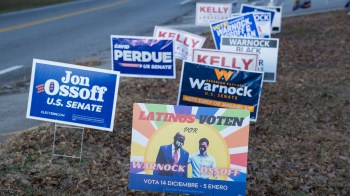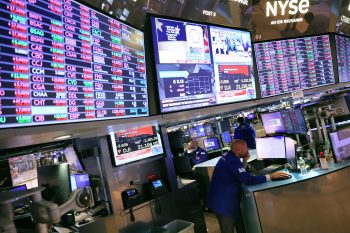Ban lobbying from bailed-out firms
TEXT OF COMMENTARY
KAI RYSSDAL: Unless and until that bad bank becomes a reality, there is still the small matter of billions of dollars in bad loans hanging around out there. The TARP, the Bush administration’s original bailout plan, was supposed to take care of that.
Yesterday the Obama administration laid down a new set of regulations to help make sure that Wall Street doesn’t get us into this kind of mess again. But commentator Robert Reich worries that old-style politics might rear its ugly head.
ROBERT REICH: Never underestimate Wall Street’s political muscle. According to the Center for Responsive Politics, the Street is now one of the biggest campaign contributors to both parties.
What have these contributions bought? Well, you might conclude, lots. In the late 1990s, Wall Street pushed Congress and the Clinton administration to tear down the wall separating commercial from investment banking — a wall erected in the 1930s after the Great Crash. Later, as the Street created ever fancier derivatives, it convinced Congress not to regulate them.
And as the speculative bubble grew, the Street successfully lobbied against giving the Securities and Exchange Commission more authority and resources to oversee bank balance sheets, and against better oversight of credit rating agencies, paid by the very companies whose securities they were rating.
And then, of course, came the great crash. And now we are bailing out the Street to the tune of at least $700 billion.
Yet the Street’s political muscle is still intact. In fact, many of the financial giants that are being bailed out by taxpayers continue to finance platoons of Washington lobbyists, who are at this moment trying to influence how the second tranche of the bailout will be spent and how Wall Street will be regulated. For example, Citigroup, recipient of $45 billion of bailout money so far, is fielding what The New York Times describes as “an army” of Washington lobbyists.
Now to be fair, Congress needs all the advice it can get. And I’m sure these lobbyists know many important things about financial markets. But as lobbyists, their job is to protect and advance the interests of their firms, not the public’s interest. Yet the public is now bailing out these firms, which means we are, in effect, paying the lobbyists to advance the same private interests that got us into this mess in the first place.
So here’s a modest proposal. From here on in, any firm receiving a publicly-financed bailout should be barred from lobbying or contributing to the campaigns of anyone in Washington who is supposed to represent the public.
RYSSDAL: Robert Reich is a professor of public policy at the University of California, Berkeley. Once upon a time he was the secretary of Labor for President Clinton.
There’s a lot happening in the world. Through it all, Marketplace is here for you.
You rely on Marketplace to break down the world’s events and tell you how it affects you in a fact-based, approachable way. We rely on your financial support to keep making that possible.
Your donation today powers the independent journalism that you rely on. For just $5/month, you can help sustain Marketplace so we can keep reporting on the things that matter to you.


















